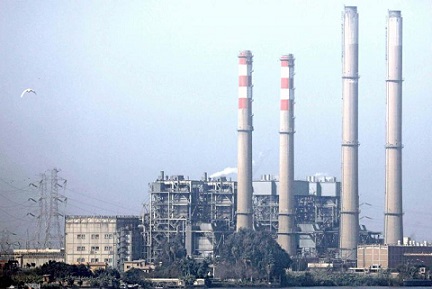
info.afrindex.com
China-Africa Trade Information Service

info.afrindex.com
China-Africa Trade Information Service

Image: Reuters
Although Egypt generates far more waste than the government can handle, Cairo has introduced waste as a new investment opportunity to international and local companies to produce electricity.
Egyptian Prime Minister Mostafa Madbouli issued a new tariff for buying electricity produced from waste at about 8 cents per kilowatt of electricity. Investors had been waiting for this tariff for three years.
Cairo had focused on investing in producing electricity from solar energy and neglected the opportunity of waste, although other countries’ experiences suggested waste could be a golden opportunity for Cairo.
The Egyptian Environmental Affairs Agency estimated Egypt’s waste output at about 96 million tonnes annually and the World Bank said Egypt was losing 1.5% of its GDP — $5.7 billion a year — by not recycling and utilising its waste; this is in addition to the cost of having to deal with waste and its effect on the environment.
Egyptian officials said they hope to increase the share of electricity produced from waste and renewable sources to about 55% of the total energy output in the country by 2050. The Ministry of Electricity revealed its plan to use waste in electricity production by offering the private sector the opportunity to invest in ten dedicated power plants.
The Ministry of Environment established the first Egyptian joint stock company for waste management in cooperation with the National Bank of Egypt, the Bank of Egypt, the National Investment Bank and Maadi Company for Engineering Industries affiliated to the Ministry of Military Production. The new company is expected to play a key role in processing waste and ensuring a constant supply of processed waste to power plants so they won’t have to deal with informal garbage collection companies.
Egypt has about 1,500 garbage collection companies operating outside the formal economy and providing jobs for more than 360,000 citizens, who often work in inhumane conditions.
Electricity Ministry sources said electricity generated from waste would be connected to the medium voltage network, requiring projects with a capacity of not less than 1 megawatt. Depending on technology used in the production process, a tonne of waste would produce 450-550 kilowatt hours of electricity.
Gamal al-Qalyubi, professor of energy at the American University in Cairo, said there are countries, such as Denmark, Norway, Sweden, the Netherlands and Spain, that successfully generate electricity from waste. Those countries possess the technology to enhance progress in the field. They are even buying waste from neighbouring countries to make electricity.
Qalyubi said the waste in European countries generally consists of paper, glass, minerals, petrochemicals and petroleum products that can easily be used to generate energy. Those products are converted into environmentally friendly materials with pollution rates not exceeding 0.03%, the European Environmental Agency said.
Investing in power plants using waste in Egypt is problematic as materials useful for generating energy are lacking. Most waste in Egypt is organic and environmentally unfriendly.
Households, shops and markets in Egypt produce about 22 million tonnes of waste, of which 13.2 million tonnes are food waste and 8.7 million tonnes are paper, cardboard and soda bottles and cans.
To increase efficiency in utilising waste, Cairo is seeking to sort waste right from the source. It began applying the process in 6th of October, Helwan, New Cairo, Alexandria and cities in the Delta and north of Cairo. Waste is sorted into three types: metal, paper and plastic, for use in advanced power plants.
The European Bank for Reconstruction and Development has allocated funding of nearly $1 billion to develop garbage collection and recycling systems in Egypt and investing in projects of environmental conservation and waste recycling.
The field opens new investment horizons and attracts foreign investors to the Egyptian market. Investment in converting waste into electricity remains the best way of disposing of solid waste. Technical and financial feasibility studies revealed that investment in the waste sector achieves a return on funds of about 18%.